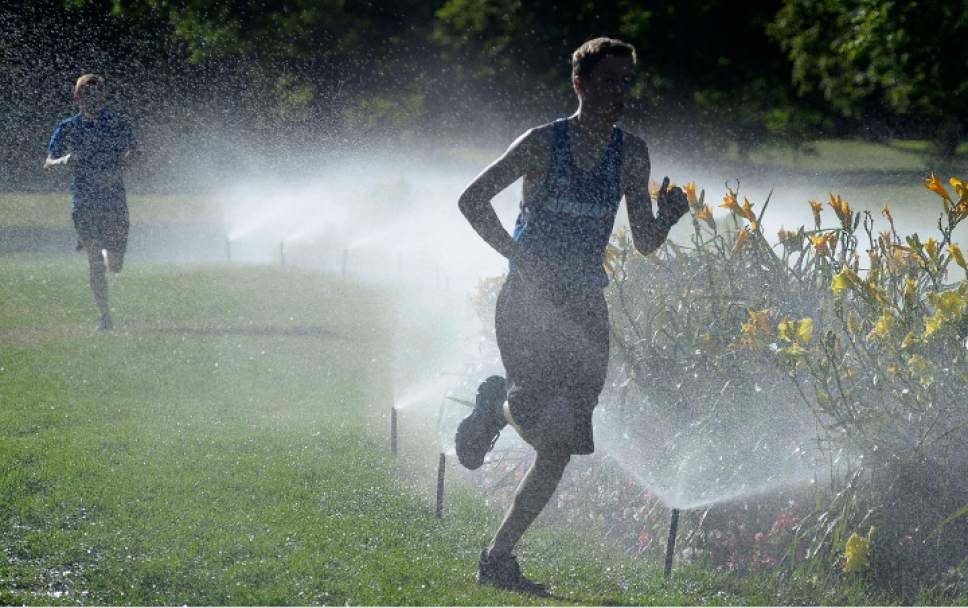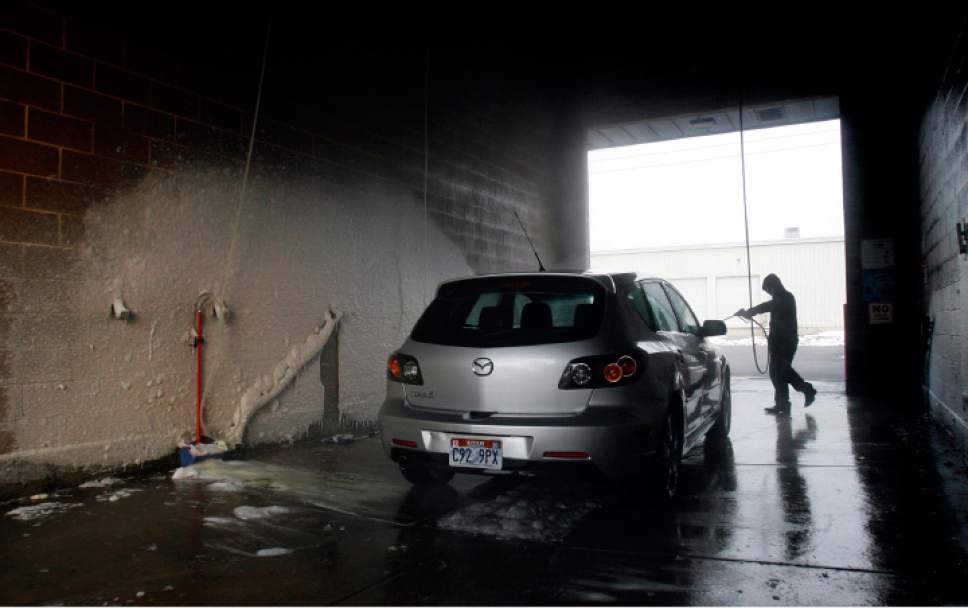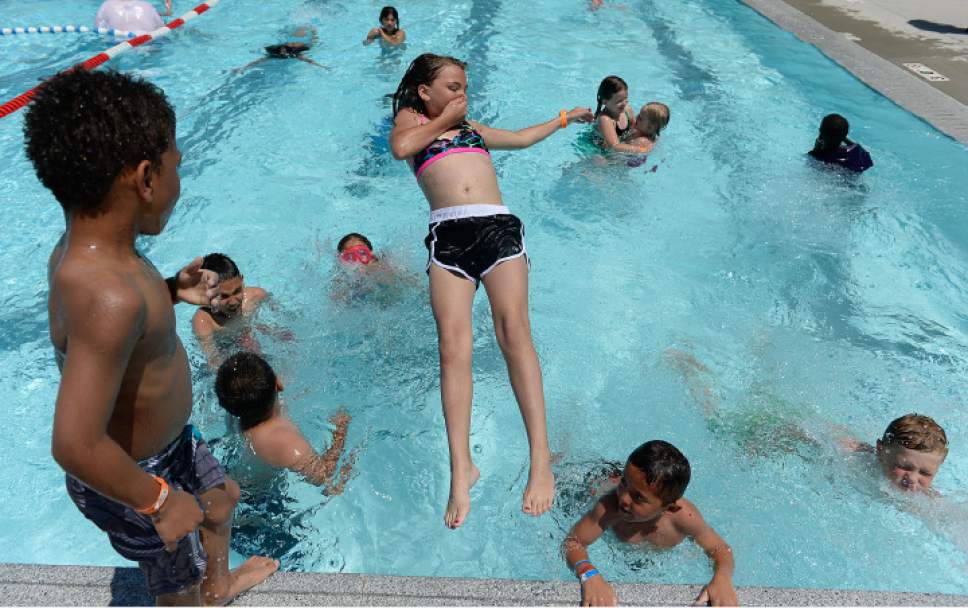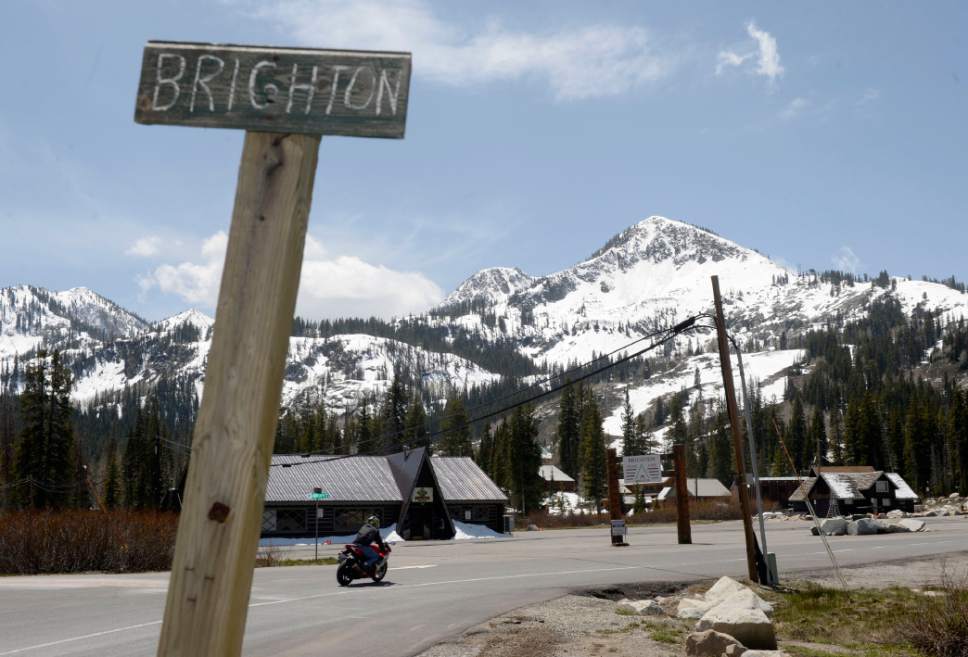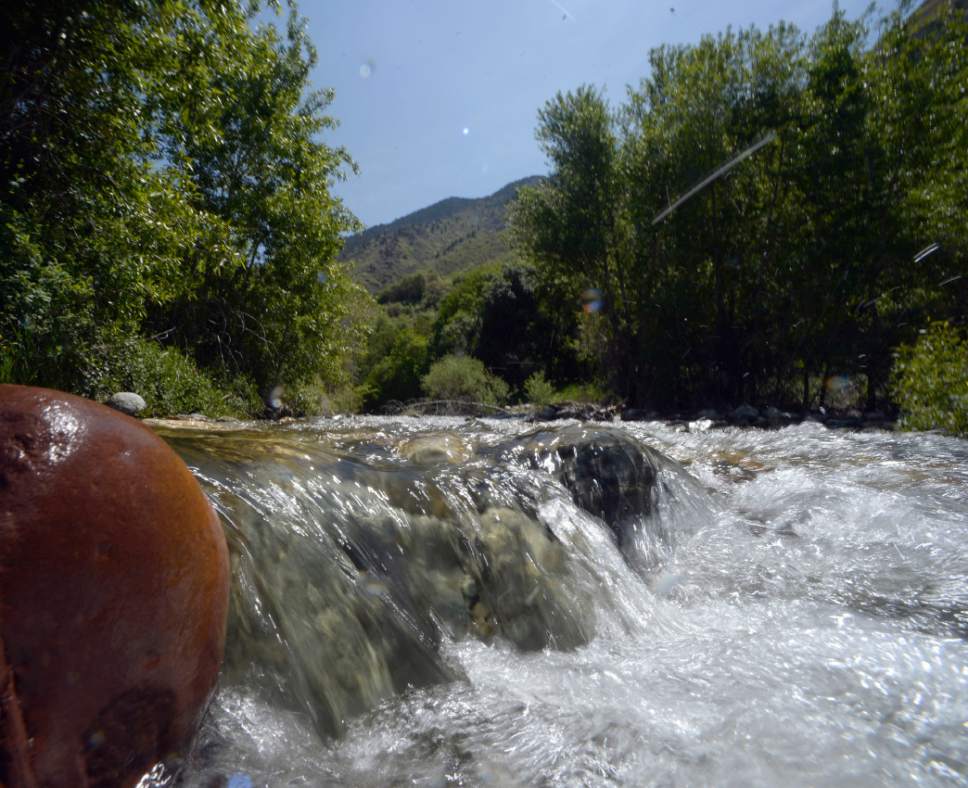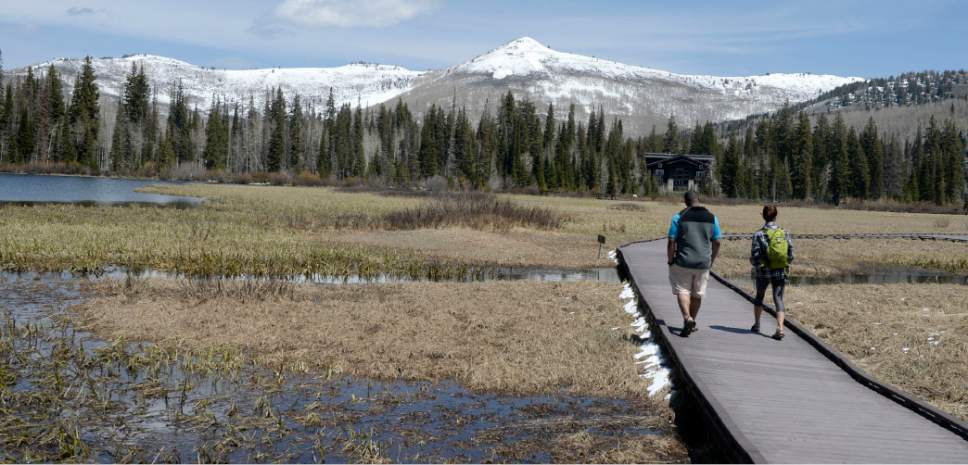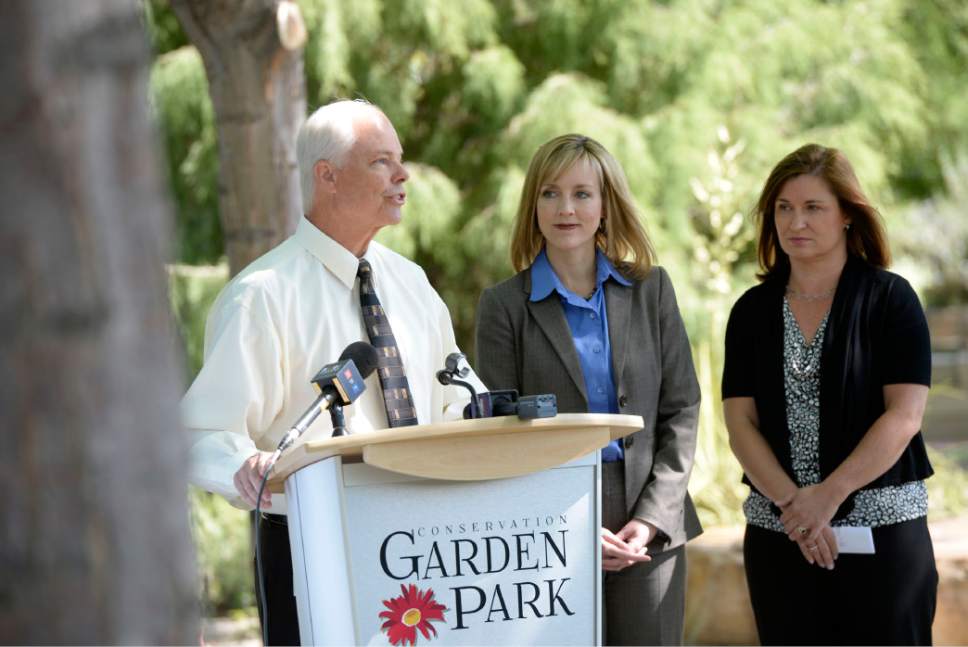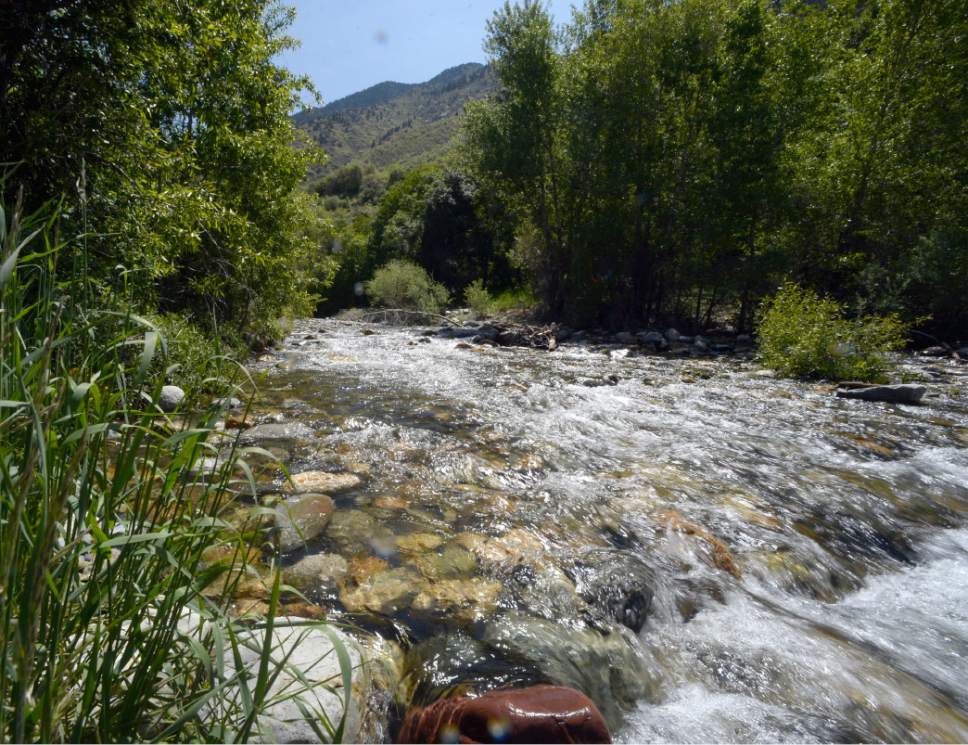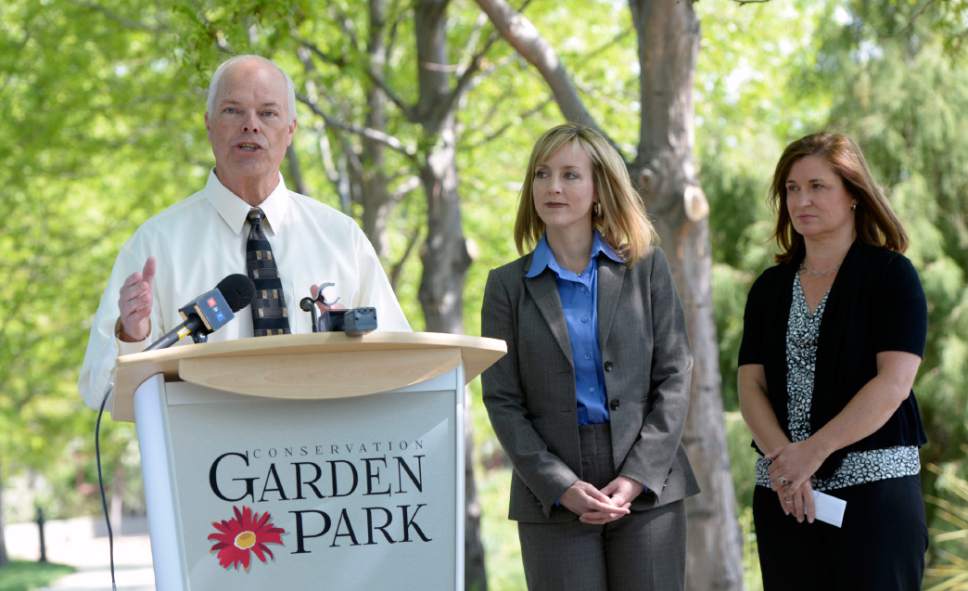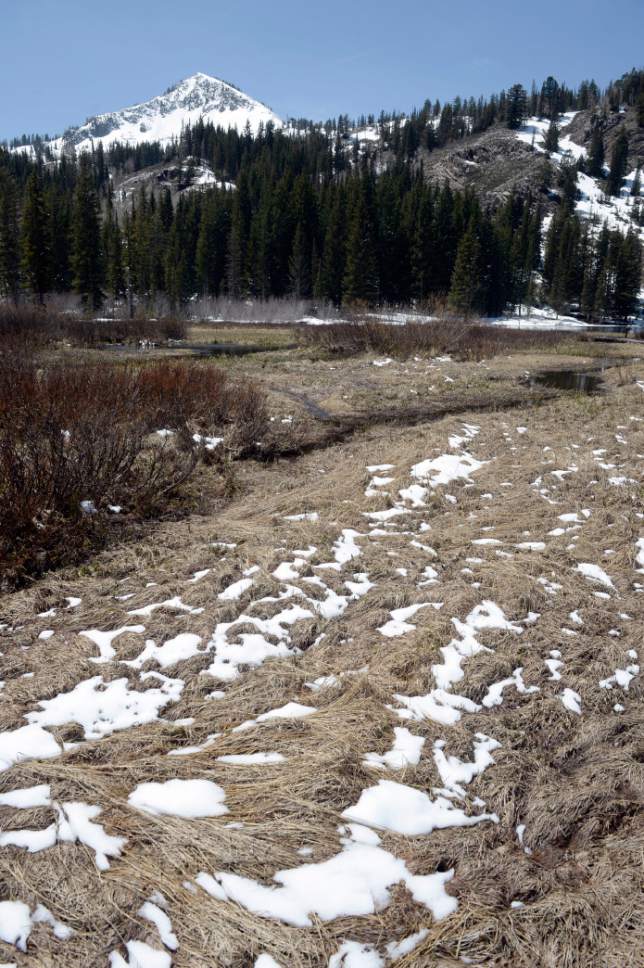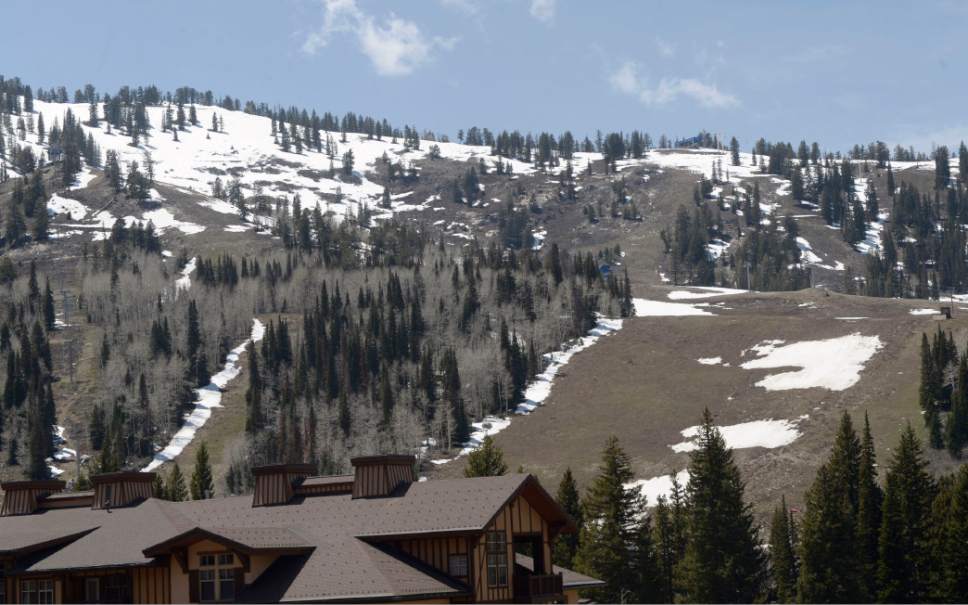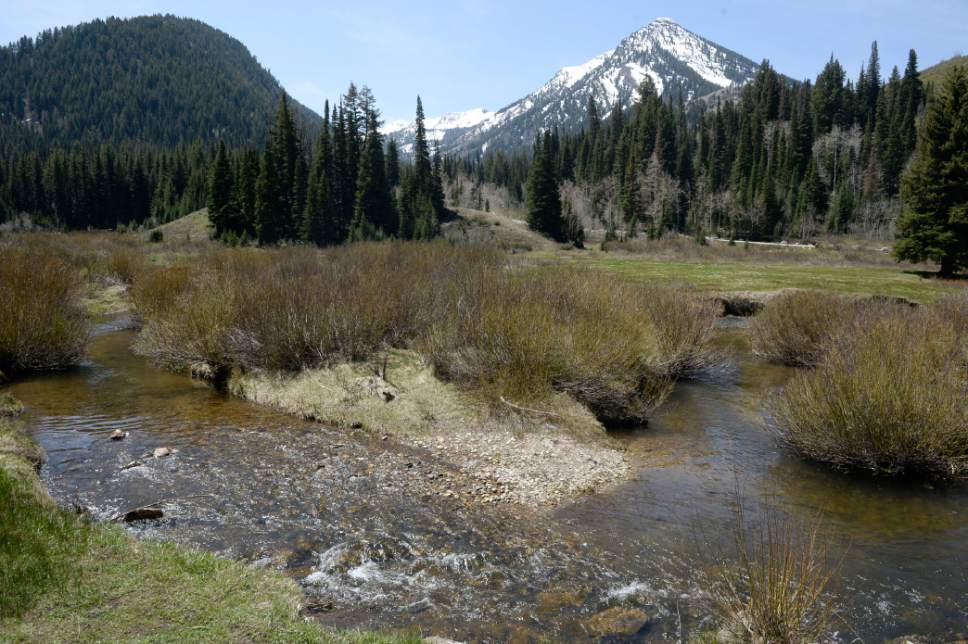This is an archived article that was published on sltrib.com in 2015, and information in the article may be outdated. It is provided only for personal research purposes and may not be reprinted.
With ever more dire water reports now the norm, Salt Lake County leaders are urging homeowners to conserve as Utah prepares for a challenging drought year.
"We've had the warmest, least snow-packed winter on record, coupled with our fourth year of drought," Salt Lake County Council member Aimee Winder Newton said Monday at a news conference at the Jordan Valley Water Conservation Park.
"Salt Lake County isn't restricting water use like other counties are, but it's vital that all of us join together to help conserve this precious resource."
Preaching about the importance of conservation is difficult when most Utahns are drying out from one of the wettest weeks in recent memory.
Salt Lake City broke the record for daily precipitation for May 9 with 0.92 inches of rain, according to the National Weather Service.
The May 6 total of 0.93 inches was close to breaking the historical precipitation record for that day.
In all, Salt Lake logged 1.93 inches of rain Tuesday through Saturday. So much water fell across Utah last week that the state lawn-watering guide at SlowtheFlow.org recommends no outdoor watering at least through Thursday.
Snowbird Ski and Summer Resort in Little Cottonwood Canyon reported 10 inches of fresh snow on its final day of operations Sunday.
That is a great start for May, but it comes on the heels of an ugly monthly Utah Water Supply Outlook Report released by the Natural Resources Conservation Service.
The limited snowpack from the 2014-15 winter is basically gone, with 70 percent of snow measurement sites across Utah showing none on the ground.
The Weber River drainage has lost 75 percent of its snowpack already and produced just 7.5 percent of its traditional April to July streamflow.
"It is hard to convince people how important water conservation is," Newton said. "It really is about a public education effort. We are hopeful that with people working on conservation we can make it through the year without restrictions on water."
Newton said she noticed homeowners and businesses watering lawns on the way to the news conference.
"We just don't have to use as much water as we are using," said Newton.
The councilwoman is working on her own yard and plans to get ideas from the conservation garden for drought-tolerant species and landscaping strategies.
Newton said Salt Lake County has worked to reduce parks and recreation department water consumption by adjusting mowing practices, allowing the grass to grow longer, aerating at least twice a year, monitoring moisture-content levels and studying areas that can be converted to low-water plants.
Newton and fellow Salt Lake Council Council member Jenny Wilson will present a resolution at a meeting Tuesday encouraging residents, businesses and governmental agencies to conserve water.
The resolution will direct water users to the Jordan Valley Water Conservancy District as a good way to get started. Jordan Valley provides water to two-thirds of Salt Lake County residents and businesses.
While recent heavy rains did little to change the overall water situation, recognizing that Mother Nature took care of sprinkling for a week can help water providers stretch limited resources, Jordan Valley General Manager Richard Bay said.
"The fact we had a record-breaking warm and dry winter is still the case," he said. "The storm was not a drought buster. People need to realize when they need to water and when they don't."
The water district has created a "when to water" guide on its website.
Water managers suggest keeping sprinkler timers on manual for more control during wet periods and watering only during the "dark hours" of 8 p.m. to 8 a.m.
Bay says this is a critical time to think about water.
"We just reached a population of 3 million in this state and we will reach 6 million in 45 years," he said. "This is a real turning point — not only in trying to conserve for this particular year but in trying to create a new culture focused on looking at ways to use water more efficiently."
Twitter: @BrettPrettyman


